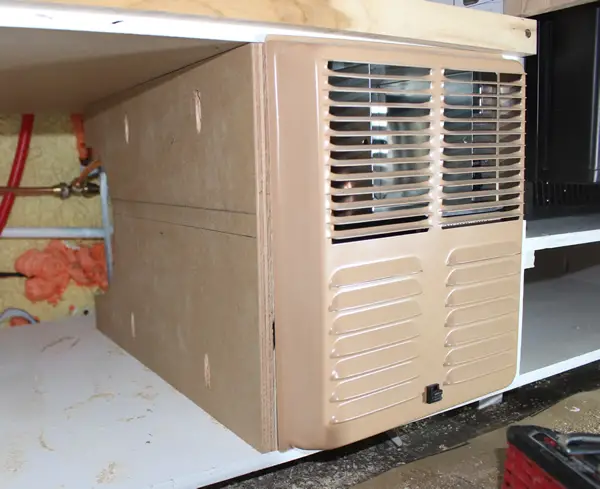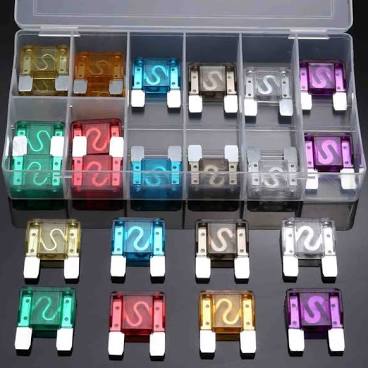Fuses keep electrical components from overheating and becoming dangerous, and they are a standard part of many machines. A fuse is an essential safety feature in any home, including RVs. You want to be confident that all electrical components of your RV are safe, so you may wonder if your RV furnace has a fuse.

RV furnaces have fuses to keep the circuits inside from overloading. Many technical issues with an RV’s furnace can be attributed to a blown fuse, which is usually the result of damaged wiring or a short circuit. If this is the case, changing the fuse won’t fix the furnace.
This article explains the importance of fuses, how a fuse works, and specifics like where your fuse may be located and how to replace a fuse.
Why Do RV Furnaces Need a Fuse?

RV furnaces need a fuse because the fuse is integral to the ignition system. If a fuse is missing in an electrical unit, it can cause damage to components in the wiring and even trigger fires.
So, if there’s no fuse in your RV’s furnace, the furnace could get damaged and cease to work. Worse, the lack of a fuse presents the risk of a fire incident in the RV.
How Does a Fuse Work?
A fuse is essentially a small wire made of metal with a low melting point. This wire is wrapped in a material that is not combustible. If the electric current becomes too powerful, it heats the fuse and melts the wire inside, breaking the circuit.
Once the wire melts, electricity can no longer flow through the circuit. It stops the machine from being able to function. This process protects you from any damage that may occur.
Importance of a Fuse
As described above, fuses are designed to protect the machines they are part of. They also prevent electrical problems and even fires. Fuses are used in many types of devices, such as vehicles and home appliances.
If a fuse breaks, you must fix it. The machine will not function if a fuse is blown, as the part is designed to break the circuit. Many problems with appliances can be attributed to a blown fuse.
Related Articles: Can You Run Your RV Furnace On 15 Amp? Here’s Why Your RV Furnace Is Blowing Cold Air
Where Is the Fuse Located in My RV?
The fuse for your furnace is located in the RV’s fuse block. The fuse block is most commonly found within the outside storage of the camper. However, they can also be located on the interior of the RV.
The location of your fuse block depends on your RV’s model. Sometimes they are found in a cabinet or hidden spot in the interior. You can find the information for your specific model in your owner’s manual or online.
How to Check the Furnace Fuse
According to this video by Radar Road Warriors, a channel dedicated to RV life, the first thing you should do if you have issues with your furnace is checking the relay fuse.
Here are the steps to do this:
- Locate the RV’s power distribution panel or fuse box.
- Open the cover on the power panel.
- Locate the DC fuses within the power panel.
- Find the fuse that connects to your furnace (this should be labeled).
- Set a digital multimeter to DC voltage.
- Unscrew the metal cover on the fuse box.
- Connect the negative side of the multimeter to the negative part of the fuse box.
- Connect the other end of the multimeter to the corresponding spot near the furnace fuse.
- If the voltage is low (approximately 5-6 volts), it is time to replace the fuse.
- Replace all covers after testing.
If you have never done DIY electrical work before, it is wise to consult a professional. Improper actions can cause serious injury.
Types of RV Electrical Systems
There are three different electrical systems in an RV. They are all responsible for powering different parts of the camper.
- First, there is the 12 volt DC automotive electrical system. This is responsible for powering all the exterior features, such as lights, the battery that starts the RV, and all features related to driving.
- There is also a 12 volt DC camper system. This primarily powers the interior lighting and the outlets/appliances inside. This electrical system is vital because it includes power for the refrigerator, heater, and blower.
- Finally, there is a 120 volt AC system. This powers the air conditioning and other luxury features such as television and washers/dryers. It also powers the part of the water heater that is not heated by propane.
Where to Buy Electrical Components for My RV
You can purchase fuses and other electrical components for your RV from your local hardware store or online. If you’re unsure if your hardware store carries the piece you need, it is always wise to call ahead and ask.
Even Amazon sells RV parts these days.
Just remember, no matter which online retailer you use, make sure to do your research and make sure they are legit. You don’t want to receive faulty or cheaply made products.
Taking My RV to a Professional vs. Fixing It Myself
If you’re looking to save money on repairs or don’t want to take the time to take your RV into a shop, you may wonder if you can fix your RV on your own. This depends on your level of comfort when it comes to electrical work.
DIY Repairs
If you’re comfortable working with electricity and cars, you should be able to do some RV maintenance yourself.
Make sure to take safety precautions and do not take any unnecessary risks. Electricity can be hazardous, so you must use caution and do your research when doing electrical repairs.
Call The Pros
If you aren’t comfortable with electricity or vehicles, it may be a good idea to take it to a professional.
It may be more costly, but it is a good option if you’re wary of DIY work. It is always best to consider your personal comfort zone.
Final Thoughts
RV furnaces do have fuses, and they’re in a place to protect you and your RV from the dangers of electrical overload.
If there are problems with the fuses in your camper, it is imperative to get the problem fixed for your RV’s safety and longevity.
